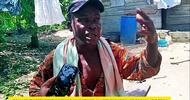The Global Economic Symposium, to be held 4-6 October in Kiel, Germany, will have a special session on land grabbing called "Dealing with the Race for Agricultural Land"
The below is from the programme wiki: http://futurechallenges.org/wiki/index.php/Dealing_with_the_Race_for_Agricultural_Land (updated 2 August 2011)
The Challenge
(Theme: The Global Environment) It is becoming increasingly difficult to satisfy the rising global demand for agricultural products in a sustainable manner. Climate change, a rising world population with changing diets, increasing urbanization and industrialization, and a rising production of non-food crops all raise the global demand for agricultural land.
How can we bring population growth, food consumption patterns, climate patterns, and land use into a sustainable equilibrium? What international trade arrangements, environmental policies, nutritional trajectories and land use patterns are required for this purpose? Lately, financially strong private and public investors mainly from Asia and the Middle East buy or rent on a long-term basis arable land in Africa, East Europe and Central and Southeast Asia. On the one hand, these land deals are often referred to as “land grabs.” As many of these investments are done in countries with an already tight.
Confirmed Speakers
1. International laws for recognition of customary land rights and traditional land use, protection of indigenous people and other local population.
2. Setting standards to avoid corruption of officials, such as requirement to include all people affected by the landgrab in the contract negotiations, providing fair opportunities and compensation, as well as veto rights for affected people; transparent negotiations.
3. International regulation on „landgrabs“ that include environmental and social impact assessment of the project prior to the deal, minimum requirements for sustainability and environmental protection; and requirements for protecting food security in the region.
4. Clear demands on investors to use a percentage of the profit for infrastructure or sustainability investments in the region, or requirement to sell a percentage of production locally, or requirements to employ local population or offer local farmers opportunities for cooperation.
5. Regulations should be made mandatory by World Bank or FAO, binding to all foreign investors.
The below is from the programme wiki: http://futurechallenges.org/wiki/index.php/Dealing_with_the_Race_for_Agricultural_Land (updated 2 August 2011)
The Challenge
(Theme: The Global Environment) It is becoming increasingly difficult to satisfy the rising global demand for agricultural products in a sustainable manner. Climate change, a rising world population with changing diets, increasing urbanization and industrialization, and a rising production of non-food crops all raise the global demand for agricultural land.
How can we bring population growth, food consumption patterns, climate patterns, and land use into a sustainable equilibrium? What international trade arrangements, environmental policies, nutritional trajectories and land use patterns are required for this purpose? Lately, financially strong private and public investors mainly from Asia and the Middle East buy or rent on a long-term basis arable land in Africa, East Europe and Central and Southeast Asia. On the one hand, these land deals are often referred to as “land grabs.” As many of these investments are done in countries with an already tight.
Confirmed Speakers
- Business: Calvin Burgess, President, Dominion Farms
- Academia: Shenggen Fan, Director General, International Food Policy Research Institute
- Moderator, Academia: Joachim von Braun, Director, Center for Development Research (ZEF Bonn)
- Policy: Rhoda P. Tumusiime, Commissioner for Rural Economy and Agriculture, African Union Commission
- IO/NGO: Roberto Rodrigues, former Brazilian Minister of Agriculture, Co-chairman of the Interamerican Ethanol Commission
- Aslihan Arslan
- Mareike Lange
- Setareh Khalilian
1. International laws for recognition of customary land rights and traditional land use, protection of indigenous people and other local population.
2. Setting standards to avoid corruption of officials, such as requirement to include all people affected by the landgrab in the contract negotiations, providing fair opportunities and compensation, as well as veto rights for affected people; transparent negotiations.
3. International regulation on „landgrabs“ that include environmental and social impact assessment of the project prior to the deal, minimum requirements for sustainability and environmental protection; and requirements for protecting food security in the region.
4. Clear demands on investors to use a percentage of the profit for infrastructure or sustainability investments in the region, or requirement to sell a percentage of production locally, or requirements to employ local population or offer local farmers opportunities for cooperation.
5. Regulations should be made mandatory by World Bank or FAO, binding to all foreign investors.













